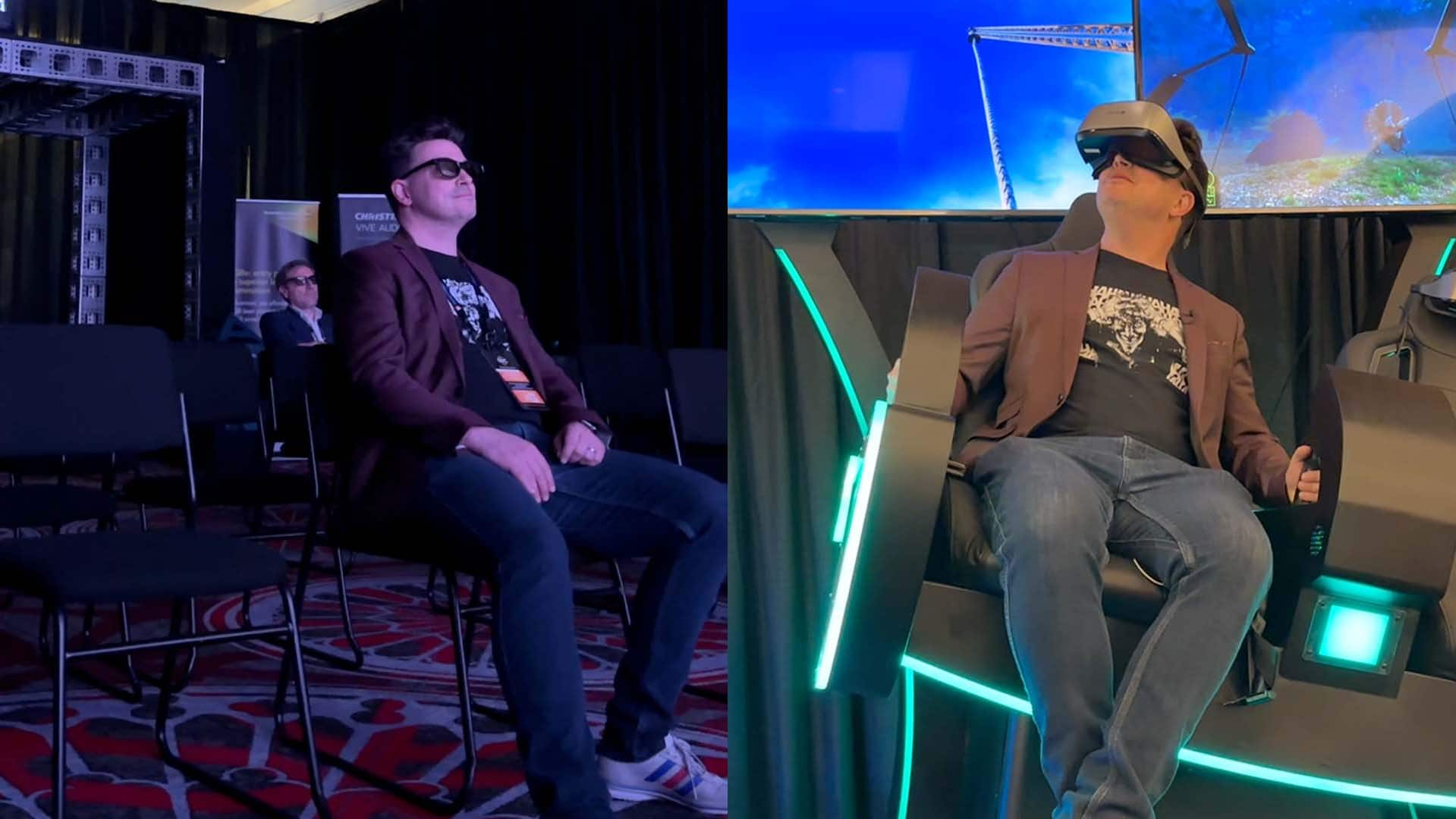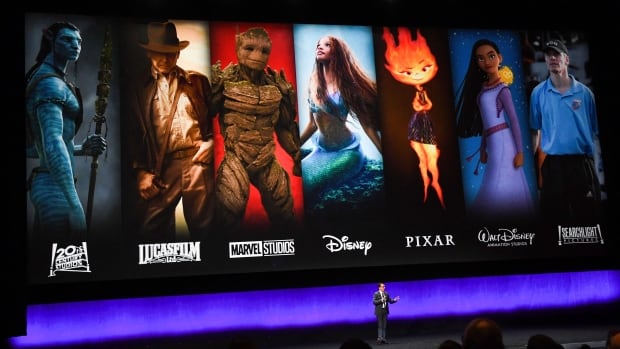
Caesars Palace was packed with movie executives and power players this week as the Las Vegas casino-hotel hosted CinemaCon, a convention for the movie theatre industry that unites studios, actors, critics and exhibitors under one roof.
Here, studios like Sony Pictures, Warner Bros. and Paramount Pictures introduce some of their most anticipated movies of the year, make announcements and preview the latest screen and sound technology. Celebrities like Leonardo DiCaprio, Rihanna and Jennifer Lawrence were in the house for the 2023 edition.
The convention can also provide a temperature check on the state of the movie exhibition industry, and Vegas didn’t disappoint — with the atmosphere one of excitement and industry rah-rah.
“The pandemic stopped everything, and now we’re back, we’re getting back, productions are rolling. There was a backlog in the special effects world. Now everything’s catching up and we’re back,” Mitch Neuhauser, the managing director of CinemaCon, told CBC’s Eli Glasner.
With a CinemaCon slate that largely showcased studio tentpoles, questions linger about the survival of mid-budget films in theatres and how streaming and theatrical venues will coexist going forward.
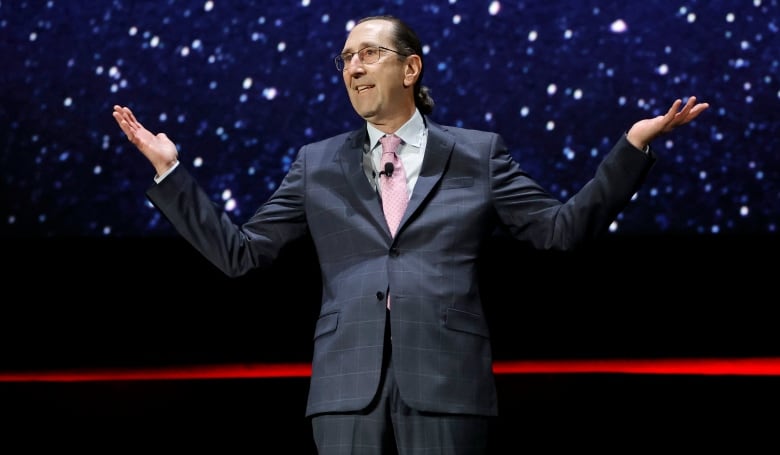
Theatrical, streaming learn to live with each other
Some of the year’s most anticipated titles are just a few weeks away. Superhero fans have Spider-Man: Across the Spider-Verse — a sequel to the innovative 2018 animation — to look forward to, while DC’s The Flash had its world premiere at this year’s convention.
Attendees got a peek at a de-aged Harrison Ford, reprising his signature character in Indiana Jones and the Dial of Destiny. Fast X, the next instalment in the Fast and Furious franchise, was also previewed.

“I grew up going to the movies and having these shared experiences,” Peter Sohn, the director of Pixar’s upcoming Elemental, said in a recent interview. Fourteen minutes of footage from the animated romance was screened at the convention.
“The idea of laughing and getting emotional with hundreds of people in a gigantic theatre and all connecting — there is a chemistry that happens. You can feel it, it’s palpable,” Sohn said. “And that is the art form of trying to create something that is about connecting emotionally. That’s what we’re all doing this for.”
Because so much of that theatrical experience has been led by blockbusters, franchises, sequels and stories mined from pre-existing intellectual property, there was a dearth of original, mid-budget films presented by studios.
That these projects are largely finding homes on streaming services further entrenches the idea that theatres are only a space for blockbuster films and that big movies require a big screen but smaller ones don’t.
WATCH | The trailer for Fast X starring Vin Diesel:
“If [mid-sized films] get permanently classified as streaming, they’re not going to get the budgets they need,” said Jeffrey Cole, a film professor and consultant who attended CinemaCon.
“You can’t make that much money in streaming. That’s the lesson we’ve learned coming out of COVID. I think they need to exist in the theatre,” he said. “You can’t have a billion-dollar movie without a movie theatre.”
Indeed, studios and streaming giants are recognizing that movies need to have a presence on streaming platforms and in theatres to make the most amount of money.
Martin Scorsese appeared at CinemaCon to share a trailer for his upcoming film Killers of the Flower Moon, which is produced by Apple TV+. Starring Leonardo DiCaprio, Robert De Niro and Brendan Fraser, it will also be distributed in theatres by Paramount Pictures, just one example of the shift to collaboration between theatrical exhibitors and streaming services.
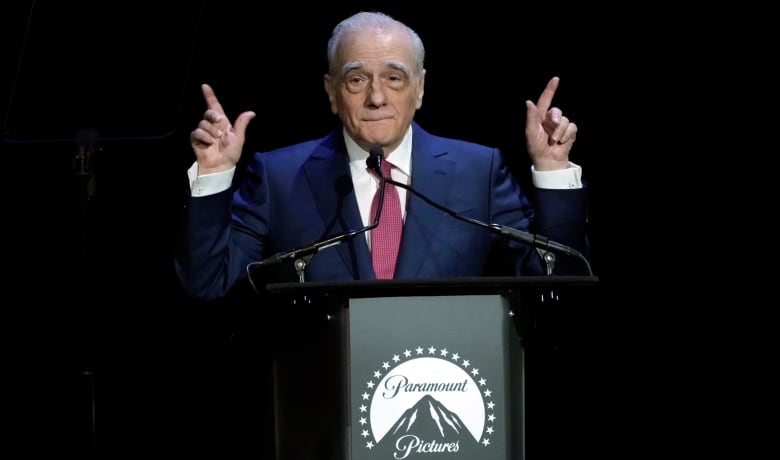
Napoleon, an upcoming biopic of the French emperor that stars Joaquin Phoenix, will follow the same formula, with Sony distributing and Apple TV+ producing.
Not everyone is on board. Netflix chief Ted Sarandos holds a markedly different attitude about collaborating with the movie theatre industry, something the streaming giant has done in the past with such titles as The Irishman and Glass Onion: A Knives Out Mystery. “Driving folks to a theatre is just not our business,” the executive said recently.
Fresh takes on old IP
Among the non-franchise films promoted at CinemaCon were several upcoming projects based on pre-existing intellectual property.
Warner Bros. gave a preview of its upcoming comedy Barbie. The involvement of indie filmmakers Greta Gerwig and Noah Baumbach suggests that the film will be an inventive take on the children’s doll — the sneak-peek footage reportedly shows Margot Robbie’s Barbie going to jail.
Cinema chains, studios and snack makers come together at CinemaCon in Las Vegas to double down on the theatrical experience and get audiences back in front of the big screen.
Similarly, the Timothée Chalamet vehicle Wonka, which had its trailer premiere at the convention, is a Charlie and the Chocolate Factory origin story that follows young Willy Wonka before he became the famed chocolatier from the Roald Dahl novel.
The Color Purple, another film previewed at CinemaCon, is adapted from the 2005 stage musical of the same name. It’s also the second film based on Alice Walker’s 1982 novel. And a film adaptation of the popular Broadway musical Wicked, starring Cynthia Erivo and Ariana Grande, is set for release in 2024.
While much of the spotlight was on blockbusters and branded films, a bright light of original storytelling at CinemaCon was The Creator, a post-apocalyptic sci-fi thriller starring John David Washington, with a script by director Gareth Edwards.
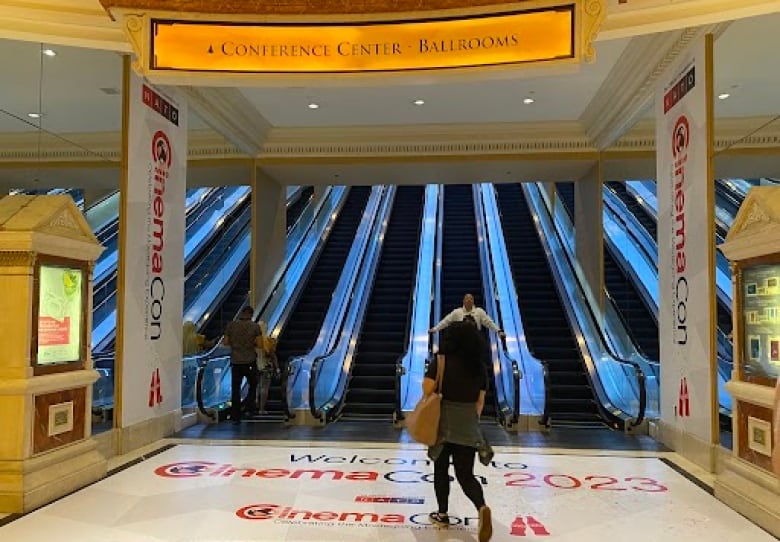
Tori Baker, the owner of an arthouse cinema in Salt Lake City, said original movies in the mid-budget range are seemingly not being produced as much. “But I am a little bit hopeful about this,” she said.
“I think it’s a little early to tell because obviously we went through this very dark period where production wasn’t happening,” but the production timeline will catch up, she said
